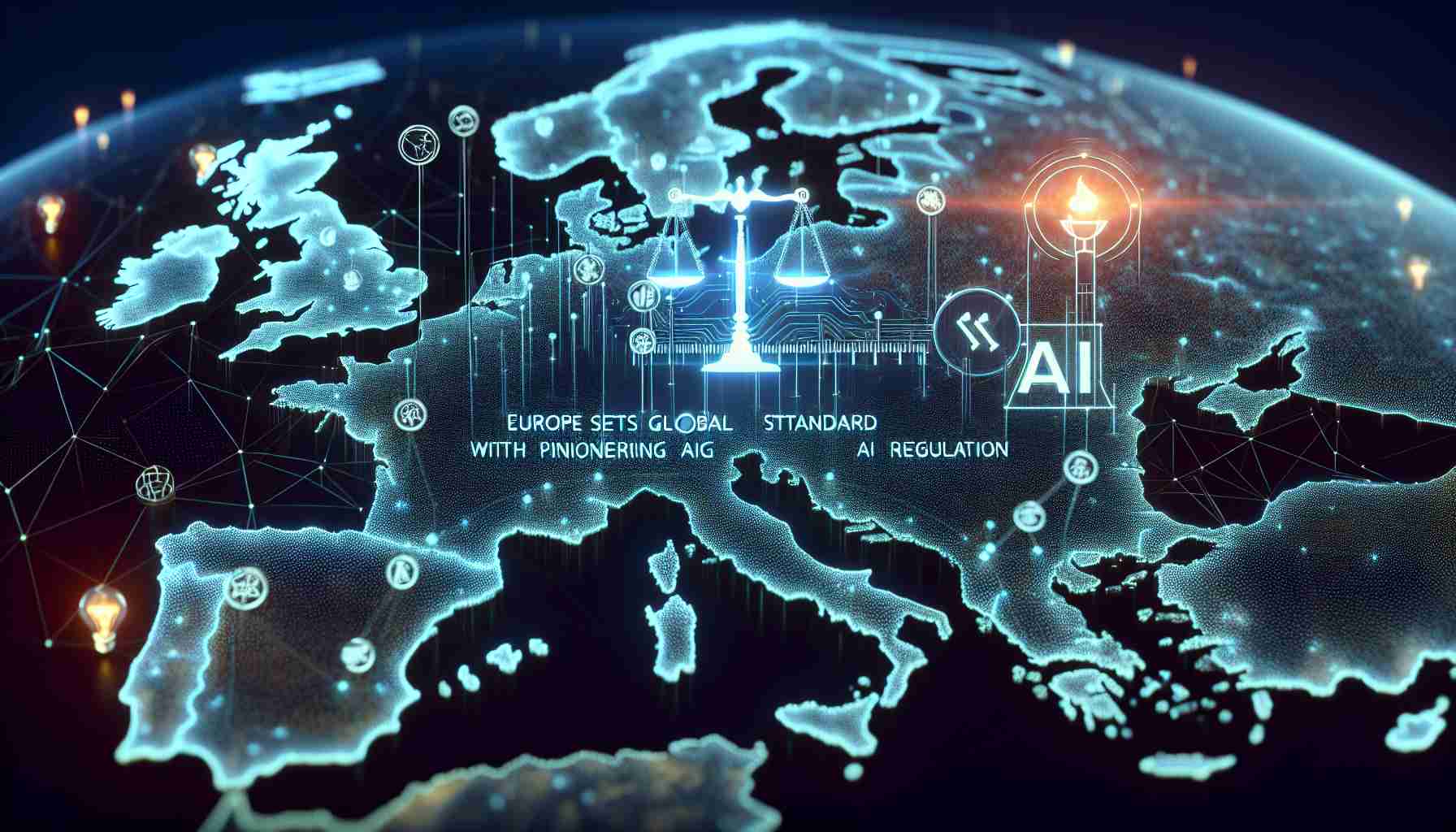Europe positions itself as a regulatory leader in the realm of artificial intelligence by endorsing novel legislation designed to harmonize AI-related rules. This groundbreaking AI Act aims to establish a universal regulatory benchmark and foster the secure and ethical adoption of AI technologies within the European market.
The principles governing the AI Act describe a risk-based legislative approach, stipulating more stringent rules for higher-risk applications potentially causing societal harm. The Act’s core objective is to promote the safe and trustworthy development and utilization of AI by both private and public sector entities within the European Union’s single market, while concurrently preserving the fundamental rights of EU citizens. Moreover, it is structured to stimulate investment and innovation within Europe’s AI landscape.
Scope and exemptions outlined in the Act assert its applicability exclusively to fields within EU jurisdiction, specifying exclusions for AI systems used solely for military and defense purposes, as well as for research purposes.
Prohibited AI practices and penalties under the legislation target cognitive behavioral manipulation and citizen scoring systems based on individual behaviors as these pose unacceptable risks. The AI Act also bars the use of AI in predictive policing relying on profiling and systems that categorize individuals by biometric data based on race, religion, or sexual orientation.
Consequences of non-compliance feature fines proportionate to a percentage of the violating company’s total global sales for the preceding fiscal year or a predetermined amount. However, smaller enterprises and startups are subject to scaled administrative fines, ensuring proportionate enforcement across different company sizes.
Importance of AI Regulation
The European Union’s drive to standardize AI regulations across its member states is paramount amidst the rapid AI technology advancements and widespread integration into various sectors. The importance of these regulations stems from the need to address critical ethical, legal, and social implications associated with AI deployment.
Key Questions and Answers:
– What is the significance of the AI Act for global AI governance?
The AI Act is a significant stride towards creating a framework that balances innovation with protecting individuals’ rights. It may set a global precedent, prompting other countries to consider similar regulations.
– How does the AI Act aim to protect fundamental rights?
The Act prohibits certain AI practices that threaten privacy, dignity, and equality. It includes measures against systems that manipulate human behavior, enable ‘social scoring’, or involve intrusive surveillance.
Key Challenges and Controversies:
One of the main challenges is ensuring that the AI Act does not stifle innovation. There is a fine line between regulation that promotes ethical AI use and regulation that inhibits technological advancement. Additionally, implementing and enforcing the Act consistently across different countries and companies will be complex.
The Act has also sparked controversies, especially regarding its impact on small businesses and startups. Some critics argue that while the Act aims to exclude smaller companies from harsh penalties, it might still place onerous compliance burdens on them, potentially hindering their growth in the AI sector.
Advantages and Disadvantages:
The advantages of the AI Act include:
– Enhancing trust in AI systems by ensuring they are developed and used in a way that respects EU values and fundamental rights.
– Providing a clear legal framework that could boost economic growth and innovation within a regulated environment.
– Fostering international cooperation and setting a global benchmark for AI deployment.
Disadvantages might involve:
– The potential for overregulation to limit creativity and competitive edge against regions with more lenient AI policies.
– The cost of compliance may be burdensome, particularly for smaller entities.
– Risk of divergence in AI regulations globally, which could create barriers to market for EU companies.
For further information about the European Union’s policies and regulations, you can visit the European Commission’s website at ec.europa.eu. If you are interested in the legal stipulations surrounding technologies like AI, including the specifics of the proposed regulation, you might consult the official documents provided by the EU’s legislative bodies at europa.eu.

